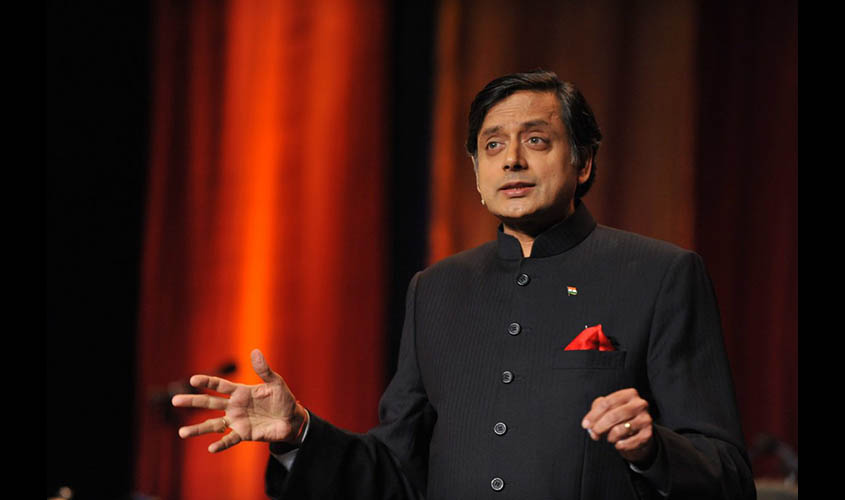Congress MP Shashi Tharoor seems to be in love with his own articulateness. And since love is blind, he is unable to realise the full consequences of the statements he makes. The recent one pertains to Jawaharlal Nehru and Prime Minister Narendra Modi. Speaking about Nehru on the eve of his birth anniversary (14 November), the Congress leader said that a chaiwala (tea seller) could become India’s Prime Minister because Nehru created the institutional structure for that. “If today we have a chaiwala as Prime Minister, it is because Nehruji made it possible to create the institutional structures through which any Indian can aspire to rise to the highest office in the land.” It’s ironic that the Congress’ English-speaking grandees seem to have never come across the phrase “once bitten, twice shy”. In their case it looks like several times bitten, but never shy. The chaiwala thing has gone too far from the grand old party’s perspective, though, much to its chagrin. Mani Shankar Aiyar made remarks pertaining to Modi’s former occupation—and it was used effectively by the latter and his followers. Aiyar even had to face the ire of the top leadership, but Tharoor seems to be unbothered. The bigger flaw in his glib comments—which some people find profound—relates to making Nehru some kind of prime mover of Indian democracy and modern India. He said, “If today the government can boast about Mangalyaan, ask who created ISRO. Who decided that even poor India could dare to aim for the skies? Who created the IITs that sent so many bright young men to Silicon Valley that 40% of the start-ups there are helmed by Indians?”
Valid points, but there are also many other points that are no less valid, the most important of which is: if Nehru is responsible for everything that is good in India, can he be absolved of his responsibility for everything that is bad? And there is a great deal that is bad.
The most ruinous policy and toxic legacy of Nehru is Soviet-style planning, control and socialism. It is indisputable that he, like other intellectuals, blindly accepted the correctness and goodness of socialism hook, line, and sinker. In his presidential address to the Indian National Congress in Lucknow on 12 April 1936, he said: “I am convinced that the only key to the solution of the world’s problem and of India’s problem lies in socialism, and when I use this word I do not do so in a vague humanitarian way but in the scientific economic sense. Socialism is, however, something even more than an economic doctrine; it is a philosophy of life and as such also it appeals to me. I see no way of ending the poverty, the vast unemployment, the degradation and subjection of the Indian people except through socialism” (emphasis added).
The philosophy of life Nehru was enamoured with has been globally discredited. The reasons are obvious: over a hundred million people dying under communist and socialist regimes; purges and murderous collectivization drives; police state and concentration camps; suppression of civil liberties and human rights; total control of the economy, society, cultures, arts, and literature—this has been the reality of socialism. George Orwell had vividly described the dystopia socialism creates in Animal Farm in 1945, and 1984 four years later. But Nehru, though known as an Anglophile, never knew or acknowledged the horrors of socialism. Thankfully, the history of socialism in our country has not been bloody, but it has surely sapped the vitality out of public life, introduced distortions in the economy, deformed administration, and perverted the processes of democracy. Today public life is not dominated by towering men and women, but by public intellectuals and cantankerous activists with (usually pinkish) agendas. Whatever happened to the social reform movements? Why didn’t the great men of the 19th century, who built institutions, have any successors?
Nehru died over half a century ago, so he cannot be accused of the present ills of the economy. But it is also true that the remnants of his socialism still plague the economy. This also has had a deleterious effect on governance.Then there is the issue of centralization of power. Socialism is predicated upon centralization, often resulting in personality cult. So, we had “India is Indira, Indira is India” and, more recently, Modi-bhaktas. Today, all political parties have become fiefdoms of the top leadership. Most parties are actually family enterprises.
If Nehru is credited with ISRO and IITs, he should also be blamed for a zillion shortcomings. This is the unintended consequence of Tharoor’s Sonia Gandhi-oriented theorising. His open belief in his own genius stops him from comprehending this.

